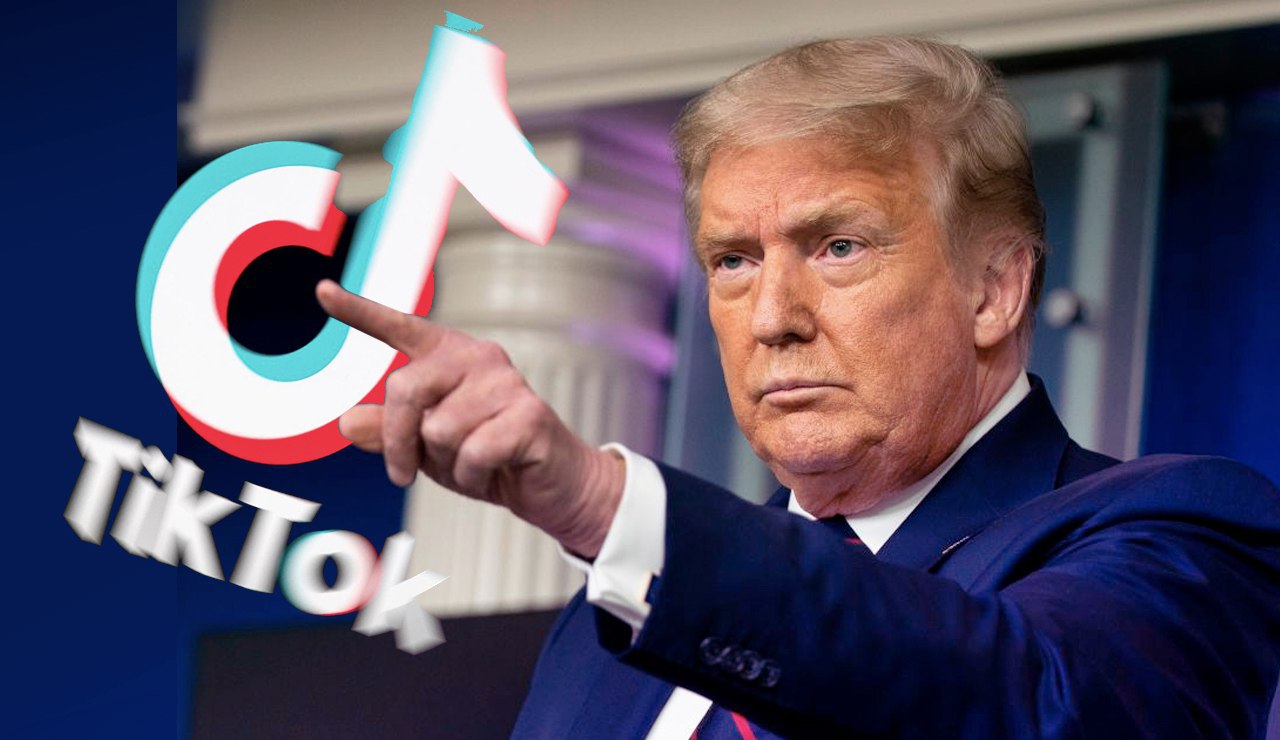Donald Trump’s threat to ban Tik Tok has made international headlines. Tik Tok is a Chinese social network that has been growing rapidly around the world, especially in 2020 during the early days of the pandemic. President Trump recently announced that he was giving the social media site’s Chinese parent company until September 15 to sell Tik Tok or it would be blocked in the United States.
At the beginning of 2020, the United States Army issued an official statement prohibiting its personnel from using the application. It argued that this application could represent a threat to National Security. Under this premise, the American Senate also did the same, followed by other institutions in the United States.
This should not be surprising if we consider that China years ago also blocked numerous US websites and applications such as Facebook, Twitter, Google, Instagram, etc. Including some journalistic networks, under the same argument as the United States, National Security.
In particular, the United States is accusing both Tik Tok and Wechat of “capturing vast tracts of information from their users,” allowing the Chinese Communist Party to access the data of American citizens. That is, it could “track the location of federal employees and contractors, create personal information files for blackmail, and carry out corporate espionage.” In addition, for the United States, Tik Tok is an application that censors “politically sensitive” publications for the Chinese government.
It currently has more than 800 million active users around the world, among which there are at least 40 million active Americans daily, most of them young people who have seen this social network as a space to unleash their anger at Trump . For this reason, this social network is of special interest to the Democratic Party, because they see short videos and content as potentially beneficial. The Democrats see it as a clear place where slogans and topics are repeated and which could be important for capturing voters.
Tik Tok collects large amounts of data that range from who is watching what kinds of videos and what they commented, geographical location, the model of the device that is being used, which operating system it uses, the rate with which the messages are written, and even what is stored on the clipboard. Paradoxically, all the data that Tik Tok recovers is the equivalent of that recovered by many western applications belonging to giant corporations such as Google, Microsoft, or even some of the main American media.
So why does the United States want to censor or acquire Tik Tok? Because Washington simply wants to reduce the competition. Over the last decade, China has become increasingly competitive in the technological field, an area that they consider as part of the cornerstone of their short-term economic objectives. We are talking about the “Made in China 2025” plan with which China publicly announced its goals of becoming a technological powerhouse. In particular, it aims to go from being “the world’s factory” with cheap and low-quality products to being a technological powerhouse that manufactures products and services with greater added value, ranging from the aerospace sector, semiconductors, computer processing, artificial intelligence, etc., seeking to eliminate the technological dependence it has on other countries.
The United States is carrying out the natural behavior that powers have had throughout history, doing everything it can to prevent giving up power to any competitor. In this context of the struggle for technological primacy where China has long limited many American technology companies, the US has responded by boycotting the Chinese tech giant Huawei, among other actions. The word “data” is crucial here. This is important because this cold war is for the control of information and therefore the control of minds. Social networks have functioned for years as an important element of activism and political dissemination that has been used by different candidates around the world, therefore they are an area of interest for both China and the United States.
Data is the “digital gold” for which the powers fight, because they know it will help provide important analyzes in the big DATA game with increasingly promising results, helping in both commercial and political terms to attract people’s attention, or to manipulate and direct public opinion to a preferred path. A few years ago, we saw how Facebook marketed the data of millions of its users without their consent, being fined $5 billion by the Federal Commission. Of course, this fine was in relation for the sale of the data of American citizens who are protected by the American constitution, but nothing guarantees that Facebook will not do the same with other countries, and they do.
Conclusions
The context of this struggle for the control of technological supremacy and for access to data has become a critical geopolitical scenario of the new cold war. The United States is in a privileged position that is threatened by Chinese growth, and the arguments to which it is appealing in order to stop China are related to National Security. China had previously done the same, taking strong control of the flow of information on social networks.
The media attention on Tik Tok is just one more appendix in this fight against Chinese growth as it challenges the US for an important portion of economic power and influence in the world. The objective of both countries is to gain control of user data, as this data provides these governments with information on what people think, say, and do, what they consume, where they live, etc. In today’s day and age, the privacy of users is more under threat than ever.

















Leave a Reply